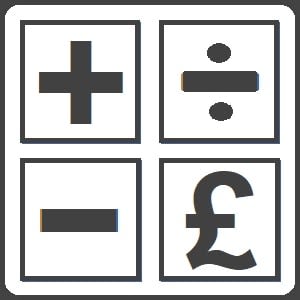Can HMRC Check Your Bank Account? What They Can See & How

Can HMRC Check Your Bank Account?
Yes, HMRC can access your bank accounts — but the answer isn’t as simple as a flat yes. Whether HMRC actually sees your bank transactions depends on the situation, the nature of the inquiry, and the legal route they follow to obtain that data. It’s not automatic, and they don’t have a direct pipeline into your bank accounts without proper legal basis.
In most cases, HMRC needs to follow specific procedures and laws to request bank information. That said, in some situations, such as when there’s a tax investigation, unpaid debts, or discrepancies in your tax return, HMRC has the power to obtain account data from your bank — and you might not even need to approve it. Understanding how and when this can happen is key to staying compliant and avoiding unwanted surprises.
Let’s look at the main legal powers HMRC uses, and how they could affect you.
The Three Key Powers HMRC Uses to Access Bank Information
There are three main legal frameworks HMRC relies on to check bank accounts and obtain financial data.
Schedule 36 Notice
Under Schedule 36 of the Finance Act 2008, HMRC can request information or documents from you or third parties (such as banks) to check your tax position. If the notice is directed to a third party, such as your bank, it usually requires prior approval from an independent tax tribunal — unless an exemption applies. These notices are used during tax compliance checks and investigations, often when inconsistencies or risks are identified.
Financial Institution Notices (FINs)
Introduced by the Finance Act 2021, FINs allow HMRC to demand information directly from financial institutions without needing your consent or tribunal approval. This power was designed to speed up the process of cross-border information sharing and enforcement. FINs can be issued when HMRC believes the data is reasonably required to check a taxpayer’s position or collect unpaid tax. While there are safeguards to prevent misuse, the FIN system increases HMRC’s ability to gather information without delays.
Direct Recovery of Debts (DRD)
DRD powers allow HMRC to recover unpaid taxes directly from a taxpayer’s bank accounts, including cash held in ISAs. This can only happen if you owe more than £1,000 in tax debts and HMRC has made repeated efforts to collect the amount. They must leave at least £5,000 untouched across all your accounts. Although court approval isn’t needed, HMRC must follow a set of strict steps before taking action — and only once the time limit for appeals has passed.
What If HMRC Doesn’t Directly Access Your Account?
Even without directly contacting your bank, HMRC can still build a picture of your finances — particularly in the digital economy. Since 1 January 2024, under the Digital Platform Reporting rules, platforms like eBay, Etsy, Airbnb, and Vinted are now required to report seller income to HMRC. This means if you make money through an online platform and meet the reporting threshold, HMRC will automatically receive your earnings data — even if you haven’t declared it yourself. While this isn’t the same as accessing your bank account, it still gives HMRC insight into your financial activity.
OECD’s Common Reporting Standard (CRS)
Under the OECD’s Common Reporting Standard (CRS), tax authorities in participating countries exchange financial account information automatically.
As a CRS member, HMRC can receive information on overseas bank accounts, investment income, and other financial data if the account holder is identified as a UK tax resident.
These data exchanges are conducted between governments based on annual reporting from financial institutions, in accordance with each jurisdiction’s local laws.
Most financial institutions will comply when required by law and submit the necessary information to their tax authority for international exchange.
Why Would HMRC Want to See My Bank Records?
HMRC doesn’t act randomly — most financial reviews are triggered by red flags. These include incorrect or inconsistent figures in your tax return, mismatches between your reported income and spending, repeated late filings, or tips from third parties. If you’ve submitted a voluntary disclosure or are being investigated for potential fraud, HMRC may request statements or issue a FIN as part of the process. In rare but serious cases, they can even freeze accounts or seize assets.
Keeping Your Finances in Order
Whether or not you believe HMRC will ever scrutinise your bank data, it’s essential to follow best practices. Always separate personal and business accounts if you’re self-employed or running a side business. Maintain clean, accurate records, file returns on time, and seek professional advice if your situation becomes more complex. Our staff at Elaga Accountancy is always happy to help. With HMRC’s powers expanding and more third-party data flowing in from digital platforms and financial institutions, transparency and compliance are your best protection.
#HMRC #UKTax #BankAccountChecks #Schedule36 #DigitalReporting #TaxInvestigation #FinancialInstitutionNotice #DirectRecoveryOfDebts
Contact Us
Send a Message
Get in touch to discuss with us how we can best assist you.
